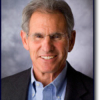Jon Kabat-Zinn

Jon Kabat-Zinn
Jon Kabat-Zinnis Professor of Medicine Emeritus and creator of the Stress Reduction Clinic and the Center for Mindfulness in Medicine, Health Care, and Society at the University of Massachusetts Medical School. Kabat-Zinn was a student of Buddhist teachers such as Thich Nhat Hanh and Zen Master Seung Sahn and a founding member of Cambridge Zen Center. His practice of yoga and studies with Buddhist teachers led him to integrate their teachings with those of science. He teaches mindfulness, which he...
NationalityAmerican
ProfessionEducator
Date of Birth5 June 1944
CountryUnited States of America
Acknowledging that sometimes, often at very crucial times, you really have no idea where you are going or even where the path lies. A the same time, you can very well know something about where you are now (even if it is knowing that you are lost, confused, enraged or without hope).
You make problem, you have problem
The funny thing about stopping is that as soon as you do it, here you are.
Nourishing the soul is the process of drinking at the life stream, coming back to one's true self, embracing the whole of one's experience - good, bad, or ugly; painful or exalted; dull or boring.
The best way to capture moments is to pay attention. This is how we cultivate mindfulness. Mindfulness means being awake. It means knowing what you are doing.
Allow your attention to gently alight on your belly, as if you were coming upon a shy animal sunning itself on a tree stump in a clearing in the forest. Feel your belly rise or expand gently on the inbreath, and fall or recede on the outbreath.
Simply put, mindfulness is moment-to-moment non-judgmental awareness.
Life on earth is a whole, yet it expresses itself in unique time-bound bodies, microscopic or visible, plant or animal, extinct or living. So there can be no one place to be. There can be no one way to be, no one way to practice, no one way to learn, no one way to love, no one way to grow or to heal, no one way to live, no one way to feel, no one thing to know or be known. The particulars count.
In its outward manifestation, meditation appears to involve either stopping, by parking the body in a stillness that suspends activity, or giving oneself over to flowing movement. In either case, it is an embodiment of wise attention, an inward gesture undertaken for the most part in silence, a shift from doing to simply being. It is an act that may at first seem artificial but that we soon discover, if we keep at it, is ultimately one of pure love for the life unfolding within us and around us.
But you cannot have harmony without a commitment to ethical behavior. It's the fence that keeps out the goats that will eat all the young shoots in your garden.
Zen has an expression, "nothing special." When you understand "nothing special," you realize that everything is special. Everything's special and nothing's special. Everything's spiritual and nothing's spiritual. It's how you see, it's what eyes you're looking through, that matters.
As long as you are breathing, there is more right with you than there is wrong, no matter how ill or how hopeless you may feel. But if you hope to mobilize your inner capacities for growth and for healing and to take charge in your life on a new level, a certain kind of effort and energy on your part will be required.... It will take conscious effort on your part to move in a direction of healing and inner peace. This means learning to work with the very stress and pain that is causing you to suffer.
Make a list of what is really important to you. Embody it.
The real meditative practice is to open up to the full range of what happens in life. And parenting is a fantastic arena for doing that kind of spiritual training. It's as much a potential door into enlightenment as anything else.